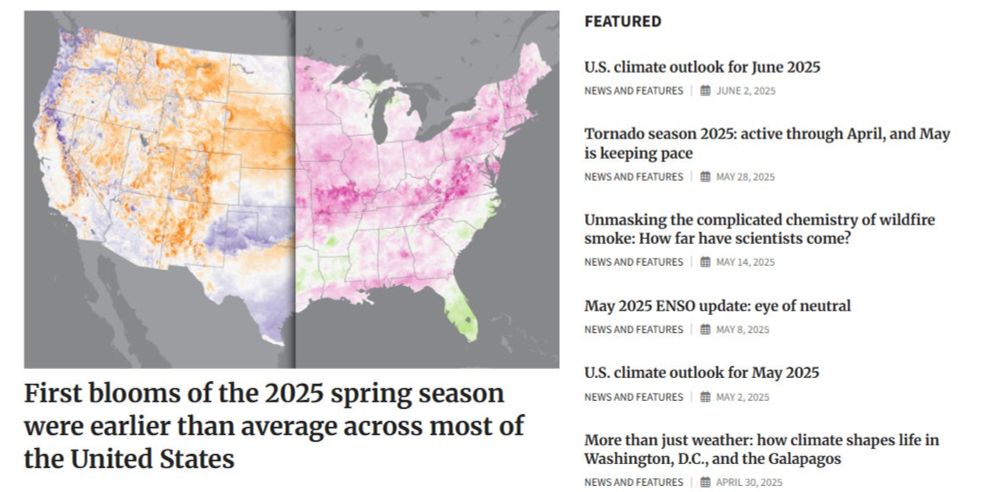
STRENGTH: Warmer water is hurricane food
RAINFALL: Warm air holds more water vapor
SURGE: Warmer water expands, warmer ice melts, sea levels rise
PREDICTION: hotter seas mean faster intensification
STRENGTH: Warmer water is hurricane food
RAINFALL: Warm air holds more water vapor
SURGE: Warmer water expands, warmer ice melts, sea levels rise
PREDICTION: hotter seas mean faster intensification

jamaica-gleaner.com/article/news...
jamaica-gleaner.com/article/news...
And.
Yet another example of a strengthening storm up to the point of landfall.

And.
Yet another example of a strengthening storm up to the point of landfall.

Camille (1969): 150 kt, 905 hPa
Anita (1977): 150 kt, 926 hPa
David (1979): 150 kt, 924 hPa
Allen (1980): 165 kt, 899 hPa
Gilbert (1988): 160 kt, 888 hPa
Andrew (1992): 150 kt, 922 hPa
Mitch (1998): 155 kt, 905 hPa
Camille (1969): 150 kt, 905 hPa
Anita (1977): 150 kt, 926 hPa
David (1979): 150 kt, 924 hPa
Allen (1980): 165 kt, 899 hPa
Gilbert (1988): 160 kt, 888 hPa
Andrew (1992): 150 kt, 922 hPa
Mitch (1998): 155 kt, 905 hPa






www.nature.com/articles/s41...
HT @jaishrijuice.bsky.social for re-upping

www.nature.com/articles/s41...
HT @jaishrijuice.bsky.social for re-upping




Couldn’t cover every facet of this historic event in just 1,500 words. I focus on the fact that risk isn’t static…and continues to rise.
www.munichre.com/en/insights/...

Couldn’t cover every facet of this historic event in just 1,500 words. I focus on the fact that risk isn’t static…and continues to rise.
www.munichre.com/en/insights/...
1969: Camille (Aug 16)
1980: Allen (Aug 4)
2004: Charley (Aug 13)
2005: Dennis (Jul 8)
2005: Emily (Jul 17)
2024: Beryl (Jul 1)
2025: Erin (Aug 16)
FYI: Don't write a season off in early August.
1969: Camille (Aug 16)
1980: Allen (Aug 4)
2004: Charley (Aug 13)
2005: Dennis (Jul 8)
2005: Emily (Jul 17)
2024: Beryl (Jul 1)
2025: Erin (Aug 16)
FYI: Don't write a season off in early August.
At this rate, category 5 intensity is likely by later this morning or early afternoon.

At this rate, category 5 intensity is likely by later this morning or early afternoon.
🗓️: July 12
🕙: 10:15 am
📍: Canyon Theater, Main Library
calendar.boulderlibrary.org/event/14927555

🗓️: July 12
🕙: 10:15 am
📍: Canyon Theater, Main Library
calendar.boulderlibrary.org/event/14927555
www.science.org/doi/10.1126/...

www.science.org/doi/10.1126/...

FEMA couldn’t even handle that.
Imagine the call volume that’ll be generated (and not answered) when a major hurricane hits a populated area, possibly just weeks from now.
www.nytimes.com/2025/07/11/c...

FEMA couldn’t even handle that.
Imagine the call volume that’ll be generated (and not answered) when a major hurricane hits a populated area, possibly just weeks from now.
2018 California Wildfires: $400B
2024 Hurricane Season: $500B
2025 California Wildfires: $250-275B
April 2025 US SCS: $80-90B
These include wild guesses about future secondary / tertiary financial impacts. Has anyone ever sought validation?

2018 California Wildfires: $400B
2024 Hurricane Season: $500B
2025 California Wildfires: $250-275B
April 2025 US SCS: $80-90B
These include wild guesses about future secondary / tertiary financial impacts. Has anyone ever sought validation?
substack.com/@balancedwea...






